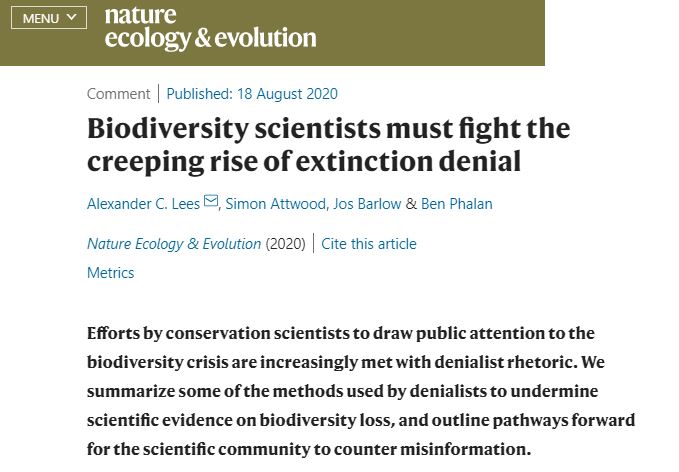
c 550 pairs of Hen Harrier in the UK in 2020
0 pairs of Montagu's Harrier in the UK 2020
(down from a 20th century peak of 30 pairs in 1953)
A thread for #HenHarrierDay
0 pairs of Montagu's Harrier in the UK 2020
(down from a 20th century peak of 30 pairs in 1953)
A thread for #HenHarrierDay

Restoring UK Hen Harrier populations is easy, all we have to do, by & large - is stop people killing them - whereby they will do OK in existing upland habitats and may eventually spread back to some lowland areas. We are now moving SLOWLY in the right direction 2/ 

Montagu’s Harrier conservation on the other hand is a complex transboundary conservation problem requiring us to do something rather than do nothing. Understanding the nature of the decline of this farmland bird requires a look at their natural history 3/ 

The diet of Hen & Montagu’s Harriers is similar, but Monties take smaller prey items & in many areas voles are preferred; in Spain the primary prey for both species is lagomorphs whilst they differ in alternative prey, birds for Hen Harriers vs. insects for Montagu's Harriers 4/ 

Montagu's Harrier is a colonial breeder, foraging mainly away from the nest areas link.springer.com/article/10.100…, whereas Hen Harrier breed solitarily and defends foraging territories 5/ 

Montagu’s Harriers (MH) are long-distance Afrotropical migrants – and in our era of global change that is not a good life history trait to have rspb.org.uk/our-work/conse… migrants face myriad threats and harriers are often shot on migration 6/
MH has declined across Europe, from 6-3000 pairs in Spain & by over 50% in France between 1930 & 1980. Montagu's Harriers were widespread & numerous (500–1000 pairs) in the Netherlands until the beginning of the 20thC but by 1987, the population had declined to near extinction 7/ 

The NL population has subsequently rebounded to 50 pairs, but between 20 and 70% of nests of this ground‐nesting species can be destroyed during harvesting activities. Watch this video about the work of @grauwekiek 8/
Montagu’s Harrier are now a conservation-dependent species in Western Europe - at present 60% of nestlings in the Iberian Peninsula and France would die because of harvesting activities if unprotected …lpublications.onlinelibrary.wiley.com/doi/epdf/10.10… 9/
Montagu’s Harrier are limited by predation and often nest colonially - the predation rates are four times lower for colonies than for isolated nests due to their colonial defence tactics against foxes and crows - not unlike Lapwings. link.springer.com/article/10.100… 10/
In one study in the Netherlands (N = 148) important causes of failure were human disturbance (40%) and predation (52%). Foxes even killed two adult female Monties on the nest in this study zobodat.at/pdf/Anzeiger-O… 11/
The same problems of agricultural intensification and predation repeat across Europe – see e.g. this interview with Dominik Krupinski europeanraptors.org/interview-with… about the fate of harriers in Poland 12/ 

Agri‐environmental schemes (AES) aimed at increasing the availability of voles in agricultural breeding areas may be an effective management tool for the conservation of Montagu's Harriers onlinelibrary.wiley.com/doi/full/10.11… 13/
One AES ‘Birdfields’ combined strips of set‐aside to boost vole numbers and strips of alfalfa, as voles are accessible after alfalfa has been harvested, paper: onlinelibrary.wiley.com/doi/full/10.11… blog: bou.org.uk/birdfields/ 14/
So, what happened in England? Well, despite the relative lack of visibility in the press/social media for MH, lots of work was put into saving the last UK birds, so it wasn’t for lack of trying – watch this video with @Bucktonbirder here: community.rspb.org.uk/ourwork/b/biod… 15/ 







It is tempting to speculate that persecution might have been an issue for the recent declines – and it was widely assumed that a satellite-tagged bird was illegally killed bbc.co.uk/news/uk-englan… on an estate with a bad reputation 16/
However, populations of Marsh Harriers, a larger and more powerful raptor continue to grow in the UK (like that most raptors away from driven grouse moors), despite occasional confirmed persecution incident which also reinforces the idea that persecution is less important 17/ 

Really, there shouldn’t be a conflict at all, male Monties are kestrel-sized raptors (Monties males 227–305 g, females 254–445 vs Kestrel males 136–252 g females 154–314 g) with a Kestrel-like diet
https://twitter.com/DominicCouzens/status/103809204858543718518/
Despite all the effort in recent years to find and identify nests express.co.uk/news/nature/57…, any nests not located in cereals would be vulnerable to destruction 19/
Low prey availability may also limit expansion – just as for other farmland bird species - which are their preferred prey in the UK -tandfonline.com/doi/pdf/10.108… in increasingly inhospitable farmland landscapes 20/ 

In the 1997 House of Lords, Hunting Act deliberations, Lord Mancroft tried to leverage hunting with hounds as a means to protect MH in the New Forest publications.parliament.uk/pa/ld200203/ld… a rather tenuous idea at best, but fox predation remains a challenge for it and other ground-nesters 21/ 

Clearly, we urgently need ‘Birdfields’ type projects which create habitat, we need to engage with farmers to find nests, and in the absence of apex predators we need to fulfill that role and stay on top of fox and crow populations 22/
Landscape level habitat restoration/rewilding project will help important e.g. greatfen.org.uk. Critically, we need conservation efforts in mainland Europe to be successful so that the dispersers recolonise the UK 23/
Really Montagu’s Harriers are just like Curlews and Lapwings, facing a similar suite of threats – even down to the loss of colonial defence mechanisms with falling population densities tied to decreasing food availability link.springer.com/article/10.100… They need our collective help 24/
We also need to have dialogue with those on the other side of the countryside wars, work out how we can create the financially-enabling conditions for harrier-friendly farming and form alliances with those who can actually deliver game AND wildlife
https://twitter.com/CA_TimB/status/1167023878138400769Ends.
• • •
Missing some Tweet in this thread? You can try to
force a refresh








